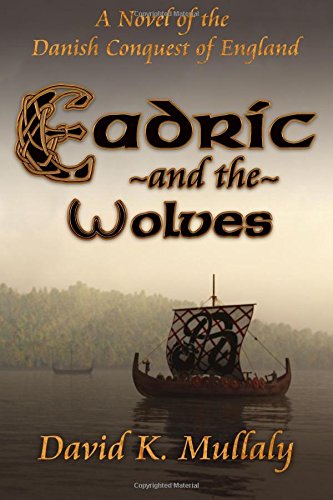Eadric and the Wolves
One of the many reasons I love historical novels is that they can throw light on a real historical person of whom little is known. or show how to help us rethink. Fiction can study the historical record and often see another side to things. History has not favoured Eadric of Mercia (d.1017), son-in-law of Aethelred II. He has gone down in history as ‘The Grasper’ or ‘The Acquisitive.’ When England found itself in an uneasy alliance between the Danes and the English with frequent raids by the Northern Danes, the Vikings, Eadric turned traitor and supported Canute to become King. Shortly after Canute’s coronation, it is said he had Eadric murdered. In writing this novel David Mullaly’s aim is to show that Eadric was a good man and that he did not grab land and assets from the Church for his own enrichment. Mullaly likens the ‘bad press’ Eadric suffered was the same as the way Shakespeare maligned Richard III. I remain to be convinced.
Unfortunately, any fiction, particularly historical fiction, needs to suspend its readers’ disbelief. Unfortunately, Mullaly’s Eadric may dress and arm himself as a man of the 11th century, but his beliefs and opinions are very much of the twenty-first. He does not believe in the Christian God, which is totally wrong for the period even though the novel explains it by an encounter with a wicked priest when he was a boy. In addition, Eadric is shocked by the cruel legal system of the 11th century, yet he accepts owning bondsmen for which he uses the Danish word thralls.
I admire the author for plucking a historical figure from obscurity, but I was left unsatisfied and wishing it had been less linear in structure.










